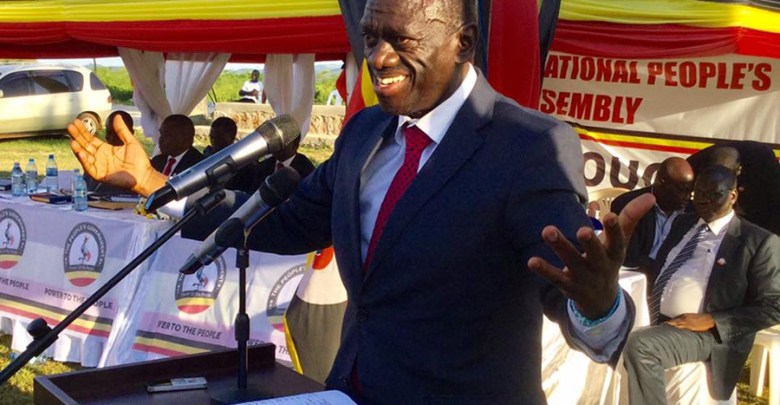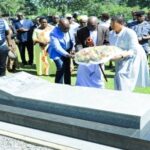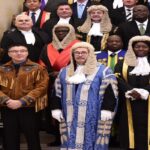Underwhelming results, defections and other internal matters have complicated Besigye’s plans for his second stint in the opposition. Where many supporters hoped for development and refinement of the methods seen in 2011~2016, the opposition have regressed, prompting questions as to what the Mukiga man is hoping to achieve and whether he has the skills to do it.
“We need to see a style of opposition develop in the next few months or else I think Besigye will be vulnerable,” said Wasswa Birigwa following the flop of the pothole demonstrations in Kampala.
“We really struggle to be able to know where each other are and put combinations and patterns together. Where is the default style of politics in this camp? I don’t see it and that is a real concern.”
Put simply, there is a gap between the style of opposition politics Besigye describes in his interviews and the one his faction is delivering.
Does this mean his communication is part of the problem in that he is not able to get his message across to the foot soldiers, or is he not articulating publicly the messages he is trying to get across privately? The disconnect between what he says and what supporters see has become an area of concern for a leader with a forever-changing list of responsibilities.
Not that this is a phenomenon specific to his time at Katonga— questions on the subject have followed him since his early days as FDC president.
“At first, he received a lot of criticism for his style of communication. He was not considered as a typical FDC president, because of his background in the NRA/M and his actions and omissions” explains Patrick Wakida, a political analyst.
“On top of that, he always spoke about the same principles. Over and over again.”
It is known that the Inter Party Coalition interviewed Besigye in 2016, but elected to Amama Mbabazi. Later that year, it was reported that senior executives at the coalition had concerns over Besigye’s ability to communicate ideas.
English, of course, is not his first language. During his time as FDC president, he had a history of answering some questions in English as well as Luganda. English was the spoken language in the FDC boardroom during the majority of his time in charge of the party.
During the interview process for the FDC flag in 2006, Besigye’s meticulous approach impressed Najjanankumbi ’s key decision-makers. Patrick Oboi Amuriat and Salaam Musumba were said to have felt there was no issue with the Mukiga’s communication skills, focusing instead on his explanations of how he planned to develop the party and make them capable of competing against the rogue regime.
Overtime, Besigye became known for punctuating his responses to questions with an “ehn?”-like grunt. His repeated use of the words “quite obviously” when answering questions stems from the Kiga phrase “buzima ziima”, which can mean “truly” or “as plain as day”. But is he delivering a clear message?
When the Katonga principal speaks, he strives to be a straightforward communicator who looks to address situations in a direct manner. Yet, in recent months, he has found some of his communications misconstrued.
It can be a small miscommunication between leader and media. But after spending so much of his first stint talking of clarity, Besigye’s directives have run the risk of confusing those listening.
Articulating oneself in a second language to a group of colleagues who themselves have varying levels of English fluency can be difficult; Museveni usually chooses to work via a translator and Norbert Mao initially opted to speak in Luganda during press conferences DO president. Besigye, to his credit, has opted to engage publicly only in English since moving to Katonga.
When moving around Katonga, it is understood he converses in English with everyone, except for the occasional conversation with his handbag Francis Mwijukye and several other Rukiga-speaking members of his renegade team, where he can switch to his native tongue.
His reiteration of the same principles, both in interviews and public addresses, seems to come from a desire to ensure certain ideals are properly understood by all. Some senior leaders are said to have occasionally grown weary of his repeated mention of concepts that should be straightforward and self-evident. The longer the Katonga principal spends attempting to explain what he wants from his colleagues, the more he risks losing their attention.
This, again, is not an uncommon situation for Besigye, and his approach to detail and repetition has brought praise as well as criticism from those who have worked with him.
Not all communication is verbal, of course, and part of a leader’s success is an ability to convey messages to the population. By contrast, Besigye’s attempts to make Katonga a transition-focused group have left them vulnerable to conceding counter-attack losses from the regime and the question lingers about whether his message is getting through to the population.
This is not the first time Besigye has faced questions over his communication style and his preferred style of politics. Only time will tell if he can turn things around at Katonga.
![]()
























